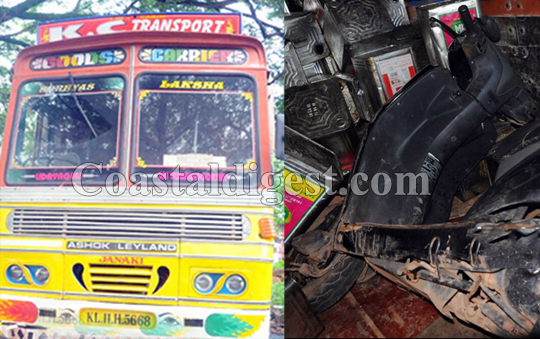Mangaluru, Sep 28: A 22-year-old youth was killed in a road accident on National Highway 66 at Beeri near Kotekar on the outskirts of the city on Wednesday.
The deceased has been identified as Mohammed Akhtar, a resident of Perubail near Ullal, who was riding his Honda Activa scooter.
According to sources, a speeding lorry coming from the direction of Kasargod rammed into Akhtar's two-wheeler near Beeri junction.
Akthar, who was heading to Beeri from Maroor on his scooter, thrown onto the road and died on the spot within a minute after the accident.
A case has been registered at Ullal police station and investigations are on.





Comments
Inna Lillahi Va Inna Ilahi Rajihoon
??? ??? ? ??? ???? ??????
Add new comment